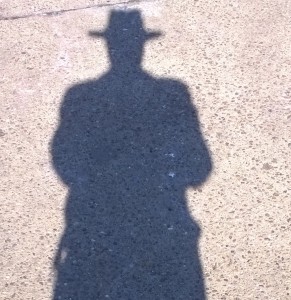Suppose just for a moment that what I am about to tell you is what really happened. Suppose for a moment what I am about to tell you is the truth that diplomats and elites do not want you to know.
First off, it will help you to understand that the world exists at two different levels: the one the elites want us to see, hear about, and is written about by the press; the other, which exists only for elites, takes place in a totally different realm, where only the few live.
In order to understand what really happened at Benghazi, this is the second in a series of articles that will provide the background to what led up to the diplomatic disaster that cost the United States the lives of Ambassador J. Christopher Stevens, Foreign Service Information Management Officer (IMO) Sean Smith, and CIA contractors and former Navy SEALS Tyrone Woods and Glen Doherty.
I assume when Qaddafi led a “bloodless military coup” and deposed of Libyan King Idris, he took possession of all of the assets of the Libyan King still in the country. I can find no reference to this assumption, although a small amount was returned to the country’s coffers. King Idris’s estate would have been small in comparison to other royal estates.
Nevertheless, it provided a good building block for Qaddafi. By 2011, it was rumored that Qaddafi had between 100 and 200 million US dollars hidden away in various corporate investments, as well as in front companies and bank accounts not associated with his name. It is my opinion the lower figure was more accurate. Plus, I assume a portion of his wealth was in physical gold. Additionally, his net worth was reported at $200 billion dollars, which included his personal and corporate ownership in crude oil field assets in Libya.
Within the decade that Qaddafi took over the Libyan oil and gas industry, political unrest resulted in a significant increase in crude oil prices. Libya became the richest country in Northern Africa. Despite the growth of a middle class, there was not a “trickle down” to the general population in proportion to the crude oil income.
The crude oil reserves in the country were the best in Africa and attracted the interests of many European countries in close proximity, including but not limited to Italy, Germany, Spain, and France. Additionally, Libya purchased goods from many of those same countries, including Italy, Germany, the United Kingdom, and France.
As I had written in the first blog, Qaddafi had withdrawn from the terrorist business after September 11, 2001. Thus, he became “more acceptable” to the Western World, particularly with the countries with which they were doing business. Naturally, business was conducted in Euros, British Pound Sterling, Italian Lira, German francs and French francs, while crude oil was purchased in U.S. dollars.
As mentioned in the first blog, by 2011, Libya officially claimed to have 4.6 million troy ounces—or 146 metric tons—of gold associated with their central bank. The value of this gold had grown to approximately $8 billion dollars USD.
Qaddafi still had dreams of becoming the egotistical name he’d given himself—the “King of Kings”—which had little meaning for the most part. That is, until his plan was revealed that could make him the power broker for most of Africa. Again, most in the Western World paid little attention until Qaddafi decided to create a gold-backed Dinar, which could potentially become a currency used throughout Africa. It should be noted that Qaddafi believed he had a sufficient quantity of gold in the Libyan central bank to initiate his plan.
Suddenly, Qaddafi was a problem to the World. The official story, sold to the public via meetings at the United Nations, was that he was mistreating his own Libyan citizens. Now, as I stated earlier, Qaddafi was not a “prince,” but there had been no major change in the way he treated his people over the past decade or more. The “Arab Spring” movement—the last of several uprisings he’d put down—caused a segment of his own population to threaten to rise up against his reign. In the past, he had put down several uprisings, but the Western World paid little attention, while obviously hoping someone would take him down.
But this time was different to the Western World. Nicholas Sarkozy, then President of France, was under extreme pressure from French banks to step in. If I had a guess, the British, Italian and German leaders were also receiving pressure from their bankers. But it was the French whom had the most to lose, as the French franc was one of the largest exchange currencies throughout most of Africa, and replacing it with the Libyan gold-backed dinar would have a huge ripple effect throughout the African continent. Those four European countries, as well as the World Prime banks in Europe, could not have that gold-backed currency go into circulation. Why, you ask? A gold-backed currency would cause non-gold-backed currencies to drop in value.
As a result of frantic meetings at the United Nations Security Council on March 17, 2011, there was a vote on Resolution 1973, with ten countries for it and five countries abstaining. Surprising to me, Germany was one of the abstention countries. Here is a portion of the quote of this resolution:
“Demanding an immediate ceasefire in Libya, including an end to the current attacks against civilians, which it said might constitute ‘crimes against humanity,’ the Security Council this evening imposed a ban on all flights in the country’s airspace—a no-fly zone—and tightened sanctions on the Qadhafi regime and its supporters.
“The Council authorized Member States, acting nationally or through regional organizations or arrangements, to take all necessary measures to protect civilians under threat of attack in the country, including Benghazi, while excluding a foreign occupation force of any form on any part of Libyan territory—requesting them to immediately inform the Secretary-General of such measures.” Quotation taken directly from the United Nations text of Resolution 1973
However, in then-Secretary of State Hillary Clinton’s emails, there was an e-mail that painted a different picture than the diplomatically crafted U.N. Resolution 1973, which came from none other than President Sarkozy, with the subject line “France’s client and Qaddafi’s gold”:
“…leading the attack on Libya with five specific purposes in mind: to obtain Libyan oil, ensure French influence in the region, increase Sarkozy’s reputation domestically, assert French military power, and to prevent Gaddafi’s influence in what is considered ‘Francophone Africa’.” Quotation from one of 3000 new Hillary Clinton emails released by the State Department – source – website http://thefreethoughtproject.com
As the Arab Spring movement went from talk to action, Qaddafi turned his army and mercenaries loose on the small group of poorly armed and organized rebels, which was composed of military deserters and ill-trained militiamen. They called their ill-fated movement the National Transitional Council (NTC). Qaddafi quipped these rebels were “17-year-olds, given pills at night, hallucinatory pills in their drinks, their milk, their coffee, their Nescafe.” Quotation of Qaddafi taken from website www.bbc.com/news/world-africa-12699033
Clearly, Mrs. Clinton bought into Resolution 1973. It can only be assumed that she also had undocumented conversations with bankers from the World Prime European banks. After the U.N. Resolution 1973 was enacted, there was no problem with President Obama getting on board, which is where he coined the famous phrase “Leading from Behind.” In my opinion, he wasn’t completely on-board with this action, but with Mrs. Clinton and the other European leaders egging him on, the United States joined the process.
Therefore, one can conclude that Resolution 1973 was carried out by world leaders, diplomats and elites to initiate a false narrative regarding Qaddafi, and start in motion a process not necessary for the protection of the Libyan population, but instead to stop Qaddafi from issuing a gold-backed African currency that would compete with the Western central banking monopoly.
Was there a precedence of stopping a gold-backed currency from going into effect by a third world country? Yes. Read up on Indonesian President Soekarno was planning to start an independent “third world bank” with a gold-backed currency in 1965. Shortly after he started this push, he was removed from office and a man the West could control, Suharto, was put in charge of the country.
In my next blog, I plan to write about what NATO did in Libya with respect to the United Nations Resolution 1973.
